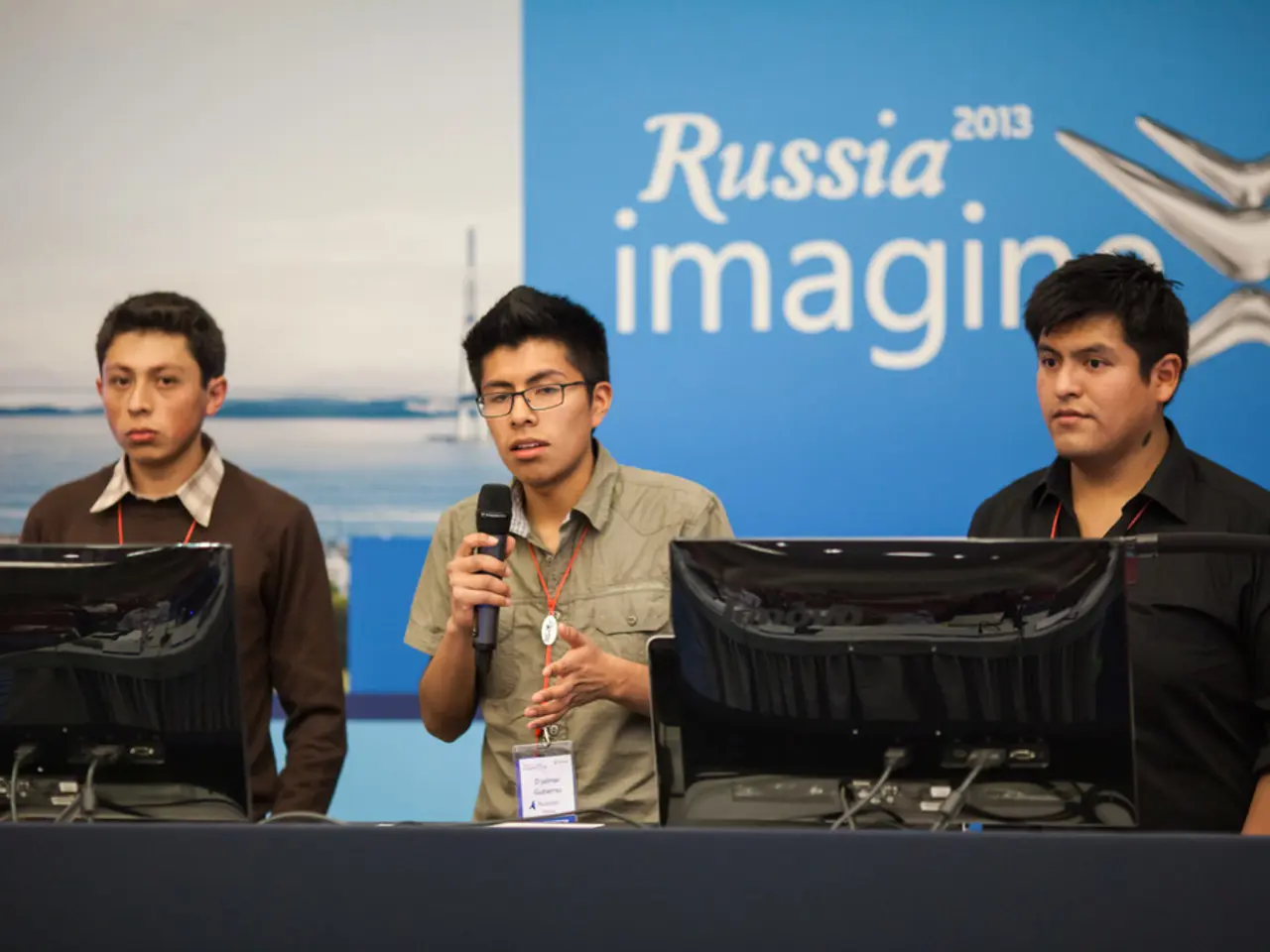China encourages AI companies to steer clear of Nvidia's H20 GPUs due to trust issues
In a significant development, Chinese authorities have been pressuring major AI firms to avoid using NVIDIA's H20 AI chips, particularly in government and national security arenas, due to alleged security concerns. These concerns revolve around potential "backdoors" for remote shutdown and location tracking embedded in these chips.
This pressure follows a series of actions and investigations. In April 2025, the U.S. government imposed a ban on the sale of NVIDIA's H20 GPUs to China for national security reasons. However, the ban was initially reversed in July amid trade negotiations. Following the reversal, China resumed access to H20 chips but shortly afterward, the Cyberspace Administration of China summoned NVIDIA to investigate security risks and then instructed domestic companies like Tencent and ByteDance to stop buying the H20 chips, citing these suspected risks.
NVIDIA, however, denies the existence of any security backdoors in their chips. The company published a blog post titled "No Backdoors. No Kill Switches. No Spyware." to address these concerns.
China's motivation is closely tied to concerns over national security and sovereignty in AI technology. The country is pushing to develop domestic AI chips, such as Huawei's efforts, to reduce reliance on foreign technology, particularly U.S. suppliers like NVIDIA.
The situation could get worse for NVIDIA before long, as China continues to express concerns about the H20 GPUs. President Trump called NVIDIA's H20 chips "obsolete" during an August 11 press conference and announced a 15% levy on any of NVIDIA's H20 or AMD's MI308 AI GPUs sold to China.
As part of the final deal to receive export licenses, NVIDIA and AMD have agreed to pay 15% of revenue garnered from AI GPU sales to China. This decision could potentially impact NVIDIA's revenue significantly, as the company has estimated a need for 300,000 more H20 AI chips from TSMC to meet China's demand. The Trump administration's ban on the sale of NVIDIA's H20 GPUs to China resulted in a $5.5 billion loss for the company.
A Chinese data center operator stated that using NVIDIA's H20 GPUs has become a politically incorrect thing to do. Beijing could drop a full ban on Chinese customers investing in NVIDia's H20 AI GPUs at any time.
NVIDIA, as the leading supplier of AI GPUs worldwide, finds itself at the centre of a geopolitical competition in AI technology and chip sovereignty. China is concerned about its AI chip industry falling too far behind as profits are sent out of the country to US corporations. The Ministry of Industry and Information Technology (MIIT) is pressuring major firms to provide answers as to why NVIDIA's H20 GPUs are being purchased.
[1] Source: TechCrunch, 12 August 2025 [2] Source: Reuters, 14 July 2025
- Despite the initial reversal of the ban, China's Cyberspace Administration summoned NVIDIA to investigate security risks in the H20 chips, and instructed domestic companies like Tencent and ByteDance to stop purchasing them.
- President Trump, during an August 11 press conference, labeled NVIDIA's H20 chips as "obsolete" and announced a 15% levy on any H20 or AMD's MI308 AI GPUs sold to China.
- The Trump administration's ban on the sale of NVIDIA's H20 GPUs to China resulted in a $5.5 billion loss for the company.
- NVIDIA, as the leading supplier of AI GPUs worldwide, is at the center of a geopolitical competition in AI technology and chip sovereignty, with China concerned about its AI chip industry falling too far behind as profits are sent out of the country to US corporations.
- Using NVIDIA's H20 GPUs has become a politically incorrect thing to do for Chinese data center operators, and Beijing could drop a full ban on Chinese customers investing in NVIDia's H20 AI GPUs at any time.
[1] Source: TechCrunch, 12 August 2025 [2] Source: Reuters, 14 July 2025




